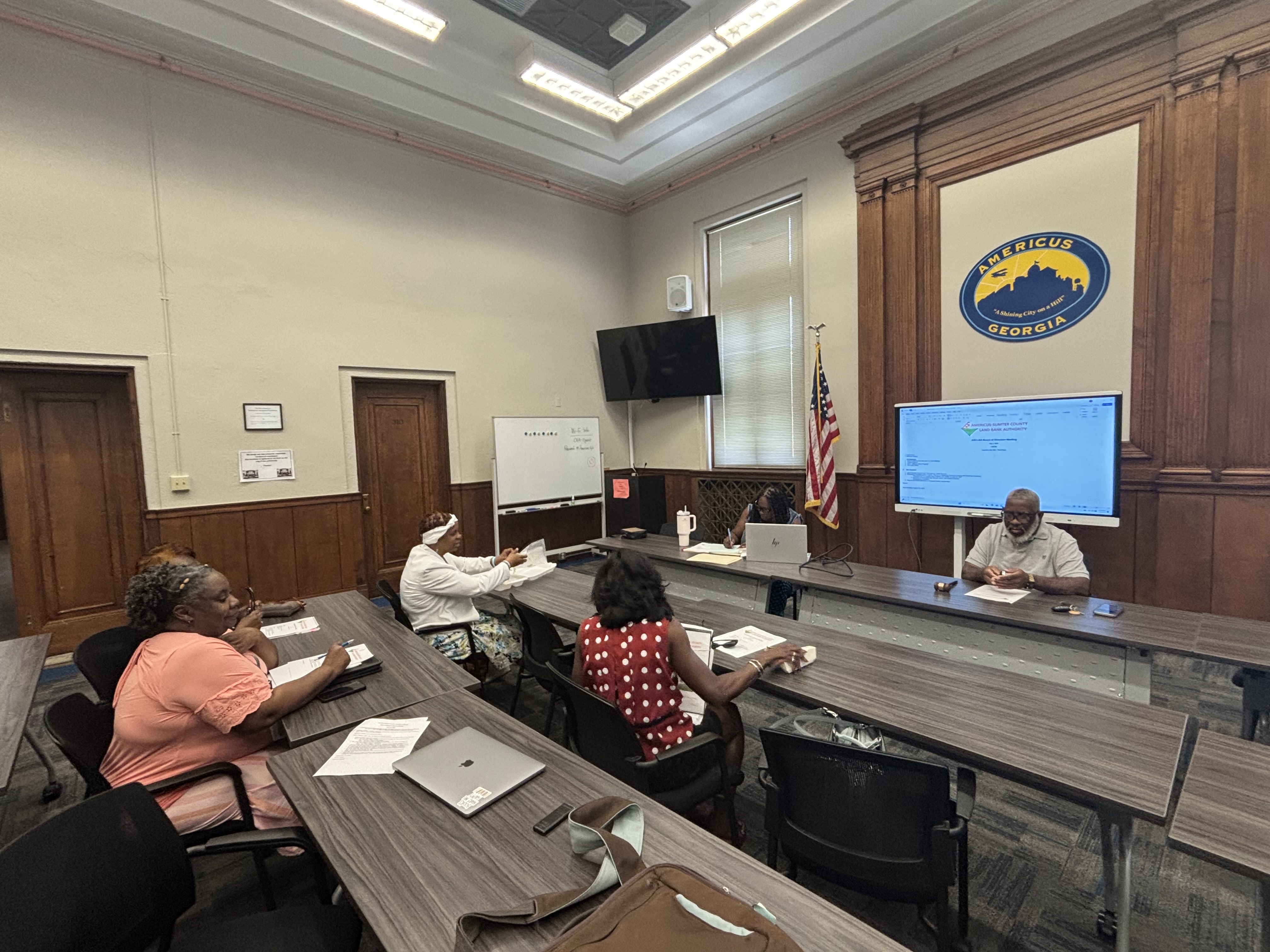SOWEGA CASA: A heart for children
Published 1:53 pm Friday, June 20, 2025

- The Sowega Casa team from left to right: Becky Albrittion-volunteer coordinator, Rosie Dean-volunteer coordinator, Karan Albrittion-Casa Director, Angelique Ludlam-volunteer coordinator, and Jessie Smith-volunteer coordinator.
Achieving permanency for a child through adoption takes serious commitment and love. Sometimes, it can be ten or twelve years in the making says Angelique Ludlam, Volunteer Coordinator for SOWEGA CASA, which stands for Southwest Georgia Court Appointed Special Advocates. “I remember one case in particular, where I was appointed to advocate for a baby boy who’d been shaken and would never walk. I made sure his voice was heard. I will never forget his adoption day. He was almost 13 years old,” she smiled. “When you see a child grow up in the system, their adoption day it is a time of celebration. That child finally gets a family who will be there for them, to love them no matter what.”
When children come into the system, through no fault of their own, the Court appoints SOWEGA CASA to be that child’s voice and to advocate for what is best for the child. Ludlam’s job is to find and train volunteers who will make this journey with that child from their earliest days in care until permanency is achieved, no matter how long this takes. “Social workers and placements change, but the CASA volunteer, in virtually all cases, does not.”
When a specially trained volunteer is assigned to a child, the Juvenile Court Judge signs an order of appointment giving that volunteer access to all of the child’s medical and psychological professionals and their records, as well as school personnel and anyone else providing services on behalf of that child. The CASA volunteer meets the child in person at least every 45 days for as long as the child is in the care of the Department (DFACS). If Ludlum cannot find a volunteer for a particular child, then she personally takes the case and becomes that child’s voice. Ludlum and, if possible, the child’s CASA volunteer, attends every court hearing, staffing, family team meeting, and Panel Review. The child’s CASA volunteer knows the child better than anyone else in the case because the volunteer does not change. At every stage of the process, the volunteer makes a “heartfelt recommendation on behalf of the child, and the Court listens.” This is an enormous responsibility.
Currently, CASA is appointed to advocate for 514 children in 17 counties in three different circuits, which include Pataula, Cordelle and the Southwest Judicial Circuit. Volunteers are desperately needed. Volunteers must be at least 21 years old, submit to a background screening and undergo a 6-8 week training. Much of the training is done on the volunteer’s schedule and is conducted virtually by Zoom. “We learned how effective virtual trainings were during COVID. We have volunteers as far away as Atlanta working with our children.” Being a CASA volunteer for a child is extremely rewarding. Volunteers make such a difference for the children they work with. “In our program, volunteers can choose what age and gender of the child they are assigned to. It is personalized. Some take only babies, some teens. They see the child at home and at school or daycare. They talk to everyone involved in that child’s life, including the parents, and the child.”
Permanency can take many forms. In cases where it is not in a child’s best interest to be permanently reunited with their parents, permanency must take another form. Permanent guardianship with a relative or nonrelative occurs when the court places the child into the permanent custody of a caregiver but the child is not adopted by them for one reason or another. “What I love the most, though, is when our children achieve permanency through adoption. It is a happy time for the child. They will have a parent or parents who have connected with them and care for them. It is closure, the end of a long journey. It’s very rewarding for our volunteers who have worked so hard for this child.” When asked to sum up her feelings on adoption, Ludlum said, “Not everyone can be an adoptive parent, but for those who are committed, it is very rewarded. Adoption comes in all colors. You may not be biologically related to the child, but you are family.” And to the child, she would say, “You have been chosen, and that is very special. You are very special.”






